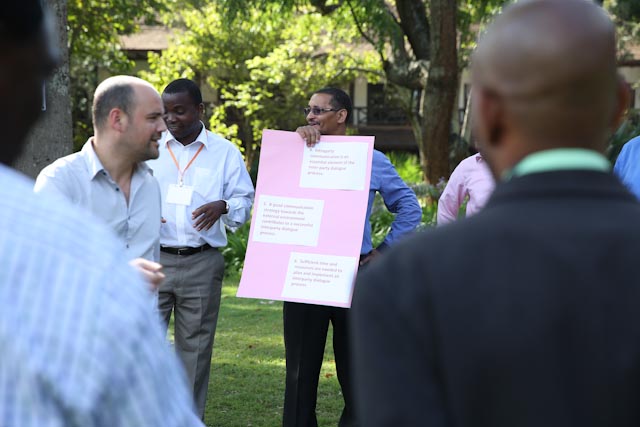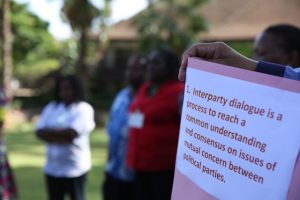
Blog by Jerome Scheltens, NIMD Knowledge Development Advisor
To celebrate the International Day of Democracy 2017, NIMD is launching our new blog on Political Paradoxes. Through this series of insights, our Knowledge Development Advisor will explore how we deal with paradoxes, contradictions or counter-intuitive manifestations in politics through our work.
This week, the University of Leiden in the Netherlands is hosting an International Colloquium on ‘Democratic Legitimacy of State Secrecy’ to explore what constitutes political legitimacy. Participants are also exploring the topic of informal closed-door deliberations.
NIMD is at this event and has enjoyed learning, and exploring the possibility of future collaborations with the experts present.
The lively discussion throughout the Colloquium on how representation bears on the justification of secrecy, got me thinking on how we, at NIMD, deal with the competing pressures of the need for confidentiality to inspire open dialogue, and the need for transparency.
In the international community, the Chatham House rule is a renowned instrument to create informal confidentiality and an atmosphere for open exchange. The rule states that information received during meetings can be shared outside of that setting, but the identity of the person who made the comment cannot be revealed.
The Chatham House rule makes sense in international diplomacy, where the exchange of information is key, and also strongly relates to the protection of sources in journalism.
But in NIMD’s political work during interparty dialogue processes, we do not generally use the Chatham House rule.
In fact, we use ‘Chatham House rule-reversed’! It is no secret who is meeting whom, but we do not disclose the content of the talks until all agree it can be shared publicly.

Dialogue processes are settings of open exchange designed to increase mutual understanding. While successful dialogue that leads to results still entails negotiations, if these start too soon during a political process it can lead to a kind of ‘give and take’ scenario, where parties trade off on their initial positions.
This usually leads to short-lived compromise, not the sustainable consensus NIMD looks for in its programmes.
For real consensus to happen, we need politicians to be willing to express their true interests, deeper needs and possible fears.
Political parties have the responsibility to aggregate the interests of the people. This is not the same as representation. Parties have the electoral mandate to make the tough choices, which some stakeholders or constituents will be pleased with and which will disappoint others.
So political parties exist in a state of permanent dilemma cracking. If the media limelight or parliamentary transparency requirements were on their shoulder the whole time, they could not fulfil this crucial yet ungrateful task responsibly.
So, just like Chatman House, as facilitators of dialogue processes we use our own tactics to create a safe space; a confidential setting to enhance interpersonal trust between competing politicians and create cross-party understanding.
But parties are public entities, what about transparency & accountability? Good point. Confidentiality should not lead to secrecy, and the need for closed-door deliberations should never become back-room dealing.
To a large extend our work is about communication management: we need a clear agreement between parties about who gets to share what and when.
In NIMD’s training module for political party agents on interparty dialogue (developed alongside International IDEA), we work to show parties that, although dialogue requires confidentiality during the meeting to enhance trust between parties, a degree of transparency concerning the dialogue process and discussed content is also crucial to enhancing society’s trust in their politicians.
Employing opposing means to the same end: this is what we call the trust-paradox.
